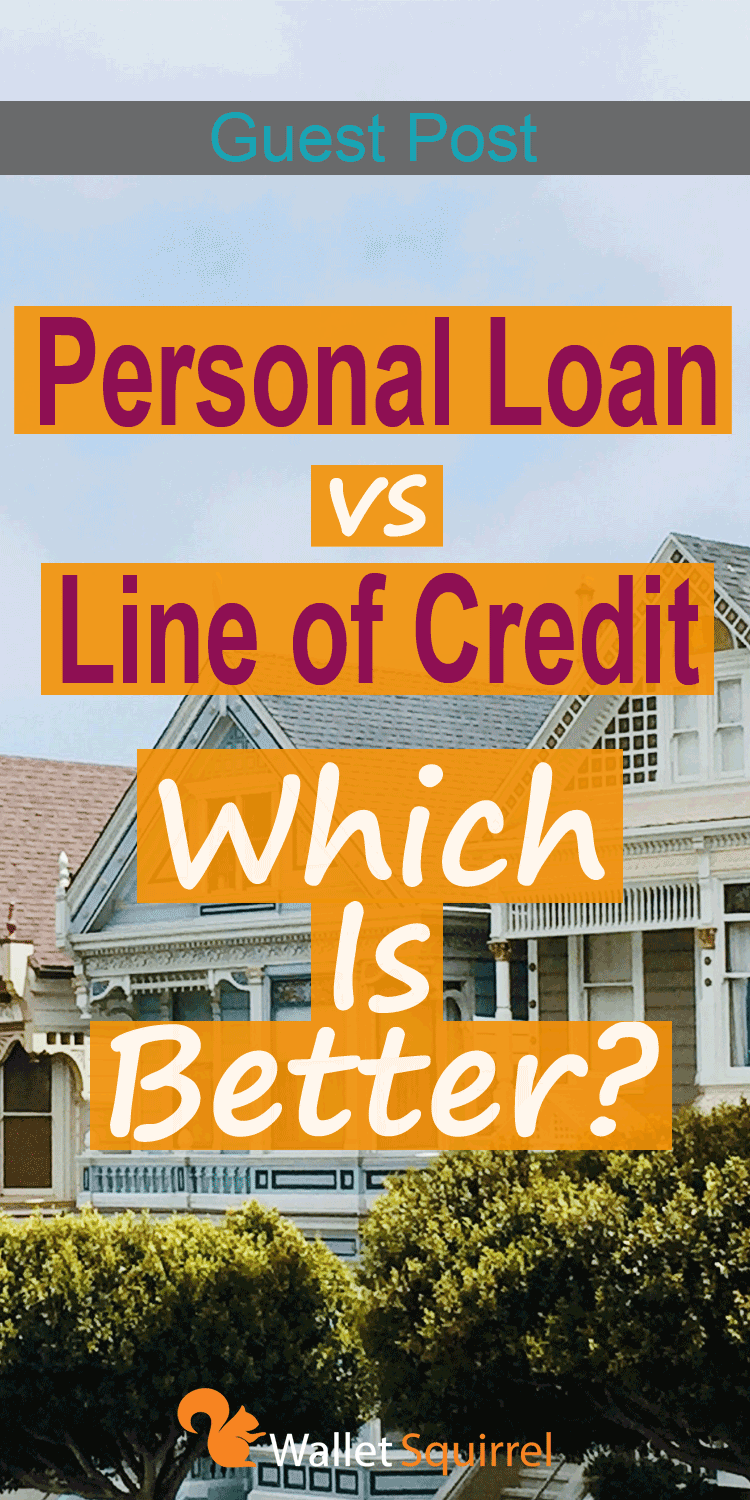Personal Loan vs. Line of Credit – Which Is Better?

It’s usually best to pay for purchases with savings whenever possible, but using credit is sometimes unavoidable. Personal loans and lines of credit are two of the most common ways in which people finance items they can’t currently afford to buy in cash.
This article will cover the most important differences between personal loans and lines of credit. Keep in mind that each one may be the best option in certain situations—it’s important to consider your unique financial circumstances when deciding between different types of credit.
Personal Loans
Personal loans offer cash upfront which you pay back according to a schedule detailed in the terms of the loan. You’ll be responsible for payments regardless of when or how you use the money, and lenders expect you to pay off the entire balance within the term of the loan.
Personal loans also come with a set interest rate, so you’ll know exactly how much you’ll pay in total based on the details of the agreement. Although they require you to make at least a minimum payment, you may be able to become debt-free sooner by contributing more than the minimum each month.
Lines of Credit
Unlike personal loans, lines of credit give you access to credit up to a limit, so you can continue to use a line of credit after paying down the balance. You only receive funds when you need them, so you won’t be responsible for interest until you start paying for items with your line of credit.
Lines of credit are often more convenient than personal loans since you won’t have to pay interest on any money you don’t need. With a personal loan, you’ll have to pay interest on the entire principal even if you find yourself spending less than expected.
Your ability to qualify for both personal loans and lines of credit depends on your credit report. You could pay a much higher interest rate if you don’t have a good or excellent credit score. Consider waiting until your credit improves if you’re rejected for several personal loans or lines of credit.
Benefits of Personal Loans

Lower Interest Rates
Personal loans come with a set interest rate and total interest cost, and rates are typically lower than those available with lines of credit. Even a small reduction in your interest rate can save you a lot of money, especially if you need a large amount of cash.
If you know exactly how much money you’ll need, personal loans are the best way to increase cash flow while minimizing interests. On the other hand, you could end up paying more interest than is necessary if you overestimated your needs.
Predictability
It’s difficult to budget for the financial impact of a line of credit, but you can easily account for the cost of regular loan payments. This also makes it much easier to compare different loans side by side before committing to a single option.
That said, a personal loan doesn’t provide the same access to funds over time as a line of credit. If your income is unpredictable, for example, a line of credit may help you manage fluctuations in your earnings as long as you pay the balance off quickly.
Line of Credit Benefits
Personal loans are sometimes the best way to get credit, but you should also think about applying for a line of credit. These factors are why so many people use lines of credit rather than personal loans or other forms of credit.
Flexibility
Like credit cards, lines of credit don’t go away once you use up the credit limit. Instead, you’ll be able to draw on credit again once you finish paying off the current balance. With that in mind, they’re a more flexible option if you need credit for more than a one-off expense.
This is also an important advantage if you don’t know in advance how much credit you’ll need. Personal loans are typically offered for specific projects or expenses, so you’ll need to take out another loan if you underestimate your need for credit.
Once you’re approved for a line of credit, you can lean on as much or as little of your credit limit as you need. You won’t need to pay interest until you start making purchases, so the timing is less important for lines of credit relative to personal loans.
Smaller Payments
Required payments vary wildly from one lender to another, but lines of credit usually have lower minimum payments than personal loans. While making just the minimum payment could lead to higher interest payments, it also helps you increase short-term cash flow.
Most experts recommend paying off your balance as soon as possible, and this is generally the most financially responsible plan. That said, smaller minimum payments prevent lines of credit from having as much of an impact on your monthly budget.
Personal loans and lines of credit are two of the best ways to access money quickly, and each is good for different reasons. These considerations will help you use your money more effectively by identifying the best option for your unique situation.
Avoiding Interest
Like credit cards, lines of credit often come with substantially higher interest rates than personal loans and other forms of credit. On the other hand, you can avoid interest entirely by simply paying off the entire balance each month.
With a line of credit, you’ll only be charged interest on balances carried over from one month to the next. You won’t have to pay interest at all if you pay off the entire debt before the next closing date.
If you have enough cash to cover the payment, a line of credit gives you the opportunity to access money now without worrying about interest. Of course, the downside to this plan is that you’ll pay much more in interest if you end up carrying a balance. Lines of credit are therefore better for situations in which you know you’ll be able to make the payment before incurring interest.




I’d rather not have no direct loans and rely on credit. This way, when I pay it off, the $0 balance benefits my credit score.
Agreed!
It teaches you patience while working toward achieving side hustle millionaire status. 🙂